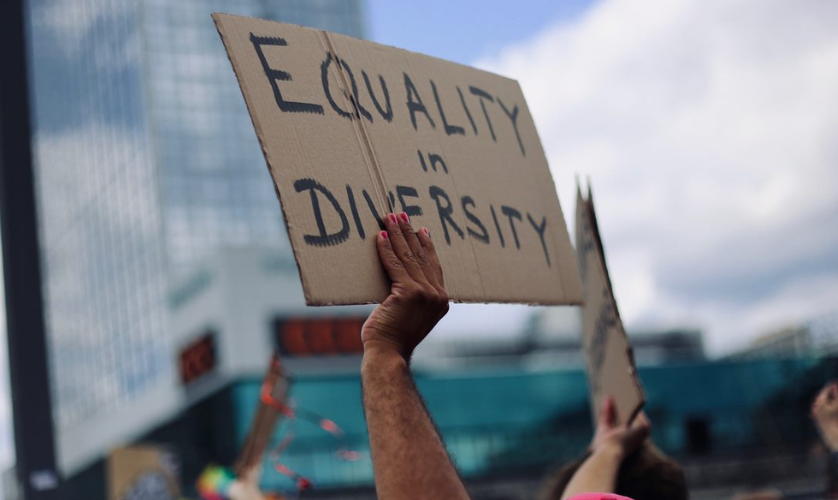
This year’s International Day Against Homophobia, Transphobia, and Biphobia (IDAHOTB) on May 17 provides a moment to reflect on how COVID-19 affected the economic and mental health of lesbian, gay, bisexual, transgender, and intersex (LGBTI) people around the world. While the pandemic has caused widespread disruptions in people’s lives across the board, it appears to have had a disproportionate impact on the economic and mental well-being of sexual and gender minorities, such as transgender and non-binary people (those who identify with a gender identity that is neither entirely male nor entirely female).
Using the 2020 COVID-19 Disparities Survey data collected by the social networking app Hornet with the World Bank and other partners during the pandemic, a recent World Bank working paper revealed a disproportionately higher proportion of economic uncertainty among transgender and non-binary people, as compared to cisgender people (those whose gender expression reflects sex assigned at birth) (see Figure 1).
Figure 1. Expectation of losing income and job, and reduction in consumption (in %) 
The study suggests that transgender and non-binary people were respectively 13 and 6 percentage points more likely to expect to lose their jobs than cisgender men, after controlling for individual, household, and regional characteristics, respectively. Likewise, the estimate further shows that non-binary people were 7 percentage points more likely to expect an income reduction of at least 30 percent during the pandemic than cisgender men.
Although the actual loss of jobs and income cannot be empirically assessed in this paper, analysis of consumption trends indirectly captures such a possibility. The research finds that the pandemic led to a disproportionate decrease in consumption for transgender and non-binary individuals with 46% of transgender and 31% of non-binary people having reported cutting the size of their meals during the pandemic, compared to only 19% of cisgender men (see Figure 1). Transgender people were about 15 percentage points more likely to have reported cutting the size of their meals than cisgender men after controlling for individual, household, and regional characteristics.
Economic disruptions were only one aspect of COVID-19’s impact on people’s lives. During the pandemic, the imposition of physical and social distancing measures also resulted in social isolation and caused mental distress among individuals. Regardless of gender identity, a considerably high number, 61% of respondents, reported experiencing loneliness since the beginning of the pandemic (see Figure 2).
But the share among transgender (78%) and non-binary people (70%) having reported feeling lonely at the onset of the pandemic is significantly higher according to the survey, which is likely associated with heightened anxiety and depression experienced by this group. Using the Patient Health Questionnaire (PHQ-4) scale for measuring psychological distress among the respondents over the last two weeks from the respective survey, the paper highlights that around 50% of transgender and non-binary persons reported experiencing anxiety and depression since the beginning of the pandemic compared to only 39% of the cisgender men reporting the same. After controlling for individual, household, and regional characteristics, the study suggests that non-binary people are 9.5 and 5.4 percentage points more likely to have experienced anxiety and depression compared to cisgender men, respectively.
Figure 2. Feeling of loneliness and experiencing anxiety and depression (in %)
These findings will be of little surprise. Sexual and gender minorities often rely on their chosen community or support network for a sense of belonging because of the exclusion they face in general from their families and society. The imposition of physical social distancing measures to curb the pandemic likely made them more vulnerable to social isolation and mental distress. And the high rate of anxiety, loneliness, and depression observed among LGBTI people might also – at least, partially – explain the reported decrease in consumption for transgender and non-binary individuals.
Sexual and gender minorities are already among the most vulnerable populations in many contexts, facing high levels of unemployment and mental health problems due to discrimination and social exclusion, and these findings highlight that the disproportionate economic and mental health impacts resulting from the pandemic may have led to further declines in their economic conditions, thus exacerbating their existing vulnerabilities. These results underline the need for pandemic recovery plans to consider the pandemic's disproportionate and multi-sectoral impacts on vulnerable populations such as LGBTI people. Hence, governments should integrate protections for these communities when designing pandemic recovery strategies.
This IDAHOTB, the World Bank pledges continued commitment to ensure equality of opportunity for LGBTI people. We will do this through generation of data on the economic cost, analysis of laws and regulatory frameworks, and support for addressing the underlying causes of exclusion based on sexual orientation and gender identity, including gender inequality and discrimination. Equality of opportunity for sexual and gender minorities is possible. And if we are to truly advance the elimination of extreme poverty and to promote shared prosperity, the full social and economic inclusion of LGBTI people is essential.





Join the Conversation